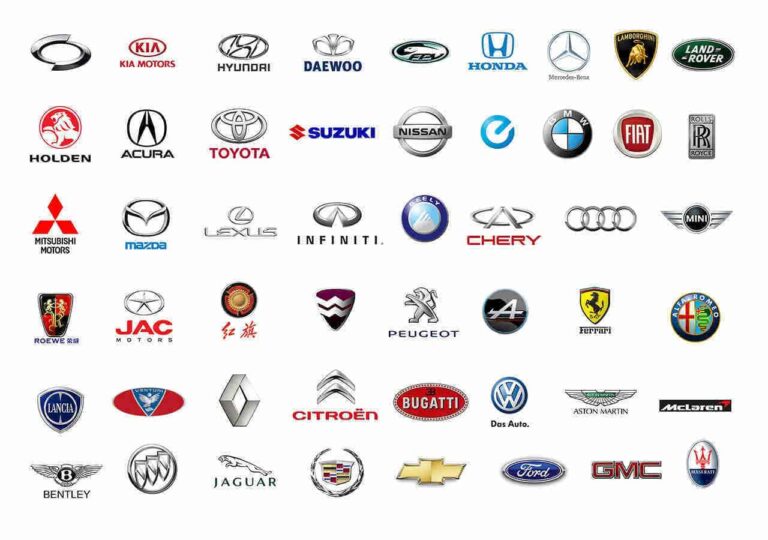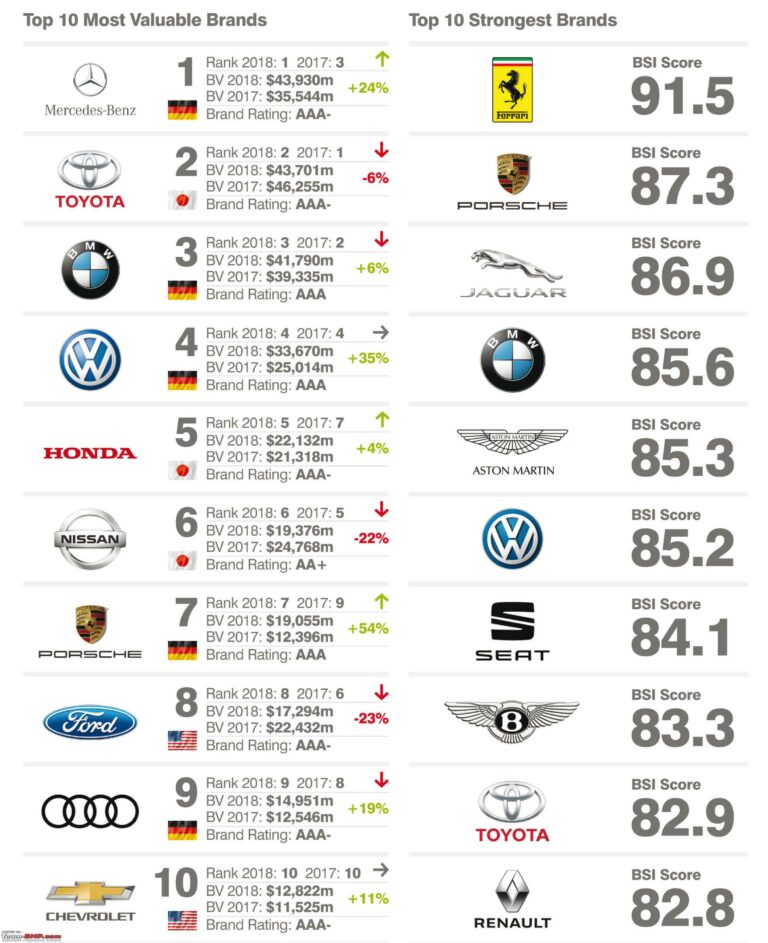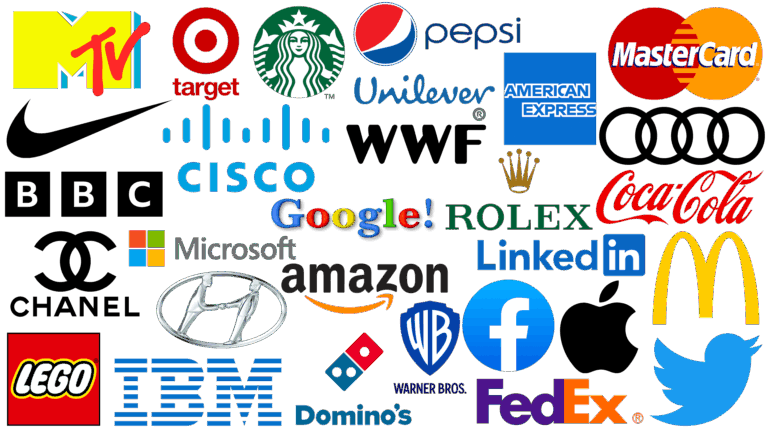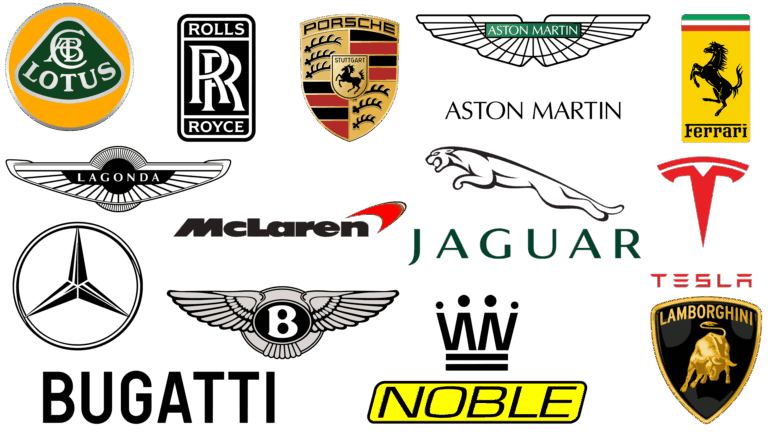Car Insurance Brands: A Comprehensive Guide to Navigating Your Options
Car Insurance Brands: A Comprehensive Guide to Navigating Your Options cars.truckstrend.com
In the complex landscape of personal finance, car insurance stands as a non-negotiable cornerstone for vehicle owners. Beyond being a legal requirement in most places, it’s a vital shield against the unpredictable financial fallout of accidents, theft, and other damages. But with a dizzying array of providers vying for your business, understanding "Car Insurance Brands" goes beyond simply picking a name; it involves deciphering their unique offerings, strengths, and how they align with your specific needs.
This article serves as your comprehensive guide to the world of car insurance brands. We’ll delve into what differentiates them, how to evaluate their services, and ultimately, how to make an informed decision that secures both your vehicle and your financial peace of mind.
Car Insurance Brands: A Comprehensive Guide to Navigating Your Options
Understanding the Landscape of Car Insurance Brands
The car insurance market is a vibrant ecosystem populated by various types of brands, each with its own business model and customer focus. Recognizing these distinctions is the first step toward making an informed choice.
Types of Insurers:
- Large National Carriers: These are household names like State Farm, GEICO, Progressive, Allstate, and Liberty Mutual. They boast extensive financial resources, wide coverage areas, vast agent networks (for some), and often offer a broad spectrum of products beyond just auto insurance. Their scale can mean competitive pricing and extensive support systems.
- Regional Carriers: Operating within specific states or regions, these brands may offer more localized service and potentially specialized knowledge of regional risks or regulations. They can sometimes provide a more personalized touch.
- Direct-to-Consumer Insurers: Brands like GEICO and Progressive (though they also use agents) heavily rely on online and phone sales, cutting out the middleman (independent agents). This model often allows them to offer highly competitive rates due to lower overheads.
- Independent Agent Carriers: Companies like Travelers, Safeco (part of Liberty Mutual), and dozens of smaller carriers primarily distribute their policies through independent insurance agents. These agents work for you, not one specific company, and can shop multiple carriers to find the best fit and price.
- Membership-Based Insurers: USAA is a prime example, serving military members and their families. These brands often offer exceptional customer service and rates tailored to their specific membership base.
- Online-Only/Insurtechs: Newer players or tech-focused brands (e.g., Root Insurance, Lemonade Car) leverage technology, often using telematics (usage-based insurance) and AI for underwriting and claims, aiming for a streamlined, often mobile-first experience.
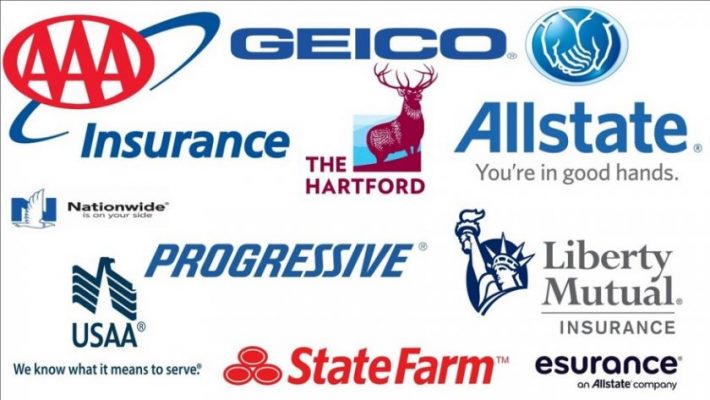
Key Differentiating Factors Among Brands:
While all car insurance brands aim to provide financial protection, they differentiate themselves through:
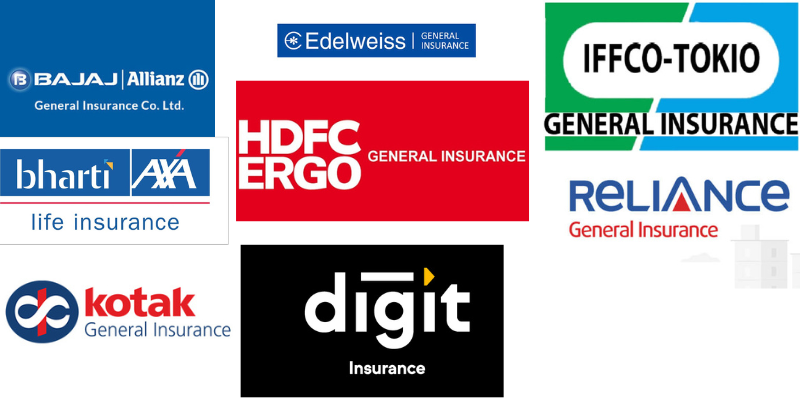
- Pricing Models: How they calculate premiums, including discounts offered.
- Customer Service: The ease of getting support, making changes, and asking questions.
- Claims Process: The efficiency, fairness, and responsiveness when you need to file a claim.
- Technology & Innovation: Mobile apps, online tools, telematics programs, and digital claims.
- Reputation & Financial Strength: Their track record and ability to pay out claims.
- Coverage Options: The breadth and flexibility of policies, including standard and add-on coverages.

How Car Insurance Brands Differentiate Themselves
The competitive nature of the insurance industry forces brands to constantly innovate and refine their offerings. Understanding these differentiators can help you pinpoint the brand that best suits your priorities.
1. Pricing Models & Discounts
This is often the first point of comparison for consumers. Brands employ sophisticated algorithms to calculate premiums based on a myriad of factors (driving history, location, vehicle type, credit score, etc.). However, their approach to discounts can vary significantly:
- Telematics/Usage-Based Insurance (UBI): Brands like Progressive (Snapshot), State Farm (Drive Safe & Save), and Allstate (Drivewise) offer devices or apps that monitor your driving habits (speed, braking, mileage). Safe drivers can earn significant discounts.
- Multi-Policy/Bundling: Offering discounts for bundling auto insurance with home, renters, or life insurance is a common strategy to increase customer loyalty.
- Good Driver/Accident-Free: Rewarding drivers with clean records.
- Student Discounts: Good student discounts, distant student discounts.
- Vehicle-Specific Discounts: Anti-theft devices, new car discounts, low mileage.
- Payment Discounts: Paying in full, automatic payments, paperless billing.
2. Customer Service & Support
The quality of customer service becomes paramount when you need help or have questions.
- Accessibility: 24/7 availability, online chat, phone, or in-person agents.
- Agent Network: Brands like State Farm and Allstate pride themselves on their vast networks of local agents who can provide personalized advice. Direct insurers like GEICO focus more on online and phone support.
- Digital Tools: Intuitive mobile apps for policy management, ID cards, and claims filing.
- Responsiveness: How quickly and effectively a brand resolves inquiries and issues.
3. Technology & Innovation
The digital revolution has transformed the insurance industry, with brands leveraging technology to enhance the customer experience.
- Online Quoting & Enrollment: Seamless digital processes for getting quotes and signing up.
- Mobile Apps: For managing policies, accessing ID cards, paying bills, and even filing claims with photo/video uploads.
- AI & Data Analytics: Used for more accurate underwriting, fraud detection, and streamlining the claims process.
- Telematics: As mentioned, UBI programs are a major tech innovation allowing for personalized pricing.
4. Coverage Options & Customization
While standard coverages (liability, collision, comprehensive) are universal, brands offer a variety of add-ons and customization options:
- Roadside Assistance: Towing, lockout service, tire changes.
- Rental Car Reimbursement: Covering the cost of a rental while your car is repaired.
- Gap Insurance: Covers the difference between what you owe on a car loan and its actual cash value if it’s totaled.
- New Car Replacement: Replaces a new car with a brand new one (not just its depreciated value) if totaled.
- Accident Forgiveness: Prevents your premium from increasing after your first at-fault accident.
- Original Equipment Manufacturer (OEM) Parts: Ensuring repairs use genuine manufacturer parts.
5. Claims Process & Reputation
This is where an insurance policy truly proves its worth. A brand’s reputation for claims handling is critical.
- Ease of Filing: Online, app-based, or phone-based claim submission.
- Speed of Resolution: How quickly claims are processed and payouts are made.
- Fairness: Whether the brand offers fair settlements and doesn’t dispute legitimate claims unnecessarily.
- Customer Satisfaction with Claims: Often measured by independent surveys (e.g., J.D. Power).
- Financial Strength: Ratings from agencies like AM Best indicate a company’s ability to meet its financial obligations, especially paying claims.
Choosing the Right Car Insurance Brand: A How-To Guide
Selecting the best car insurance brand for you isn’t about finding a universal "best"; it’s about finding the right fit for your individual circumstances.
-
Assess Your Needs:
- Coverage Level: What level of liability, collision, and comprehensive coverage do you need? Do you want add-ons like rental reimbursement or roadside assistance?
- Budget: What can you realistically afford for premiums and deductibles?
- Driving Habits: Are you a low-mileage driver? Do you have a clean record? These influence discount eligibility.
- Service Preference: Do you prefer a local agent, or are you comfortable with online/phone support?
-
Research and Compare Quotes:
- Online Comparison Tools: Websites like NerdWallet, The Zebra, or Bankrate allow you to get multiple quotes by entering your information once.
- Direct Quotes: Visit the websites of major carriers (GEICO, Progressive, State Farm) to get direct quotes.
- Independent Agents: Work with an independent agent who can shop policies from several different carriers on your behalf. This is often the easiest way to compare.
- Get at least 3-5 quotes.
-
Read Reviews and Check Ratings:
- Consumer Reviews: Look at customer feedback on sites like Google, Yelp, and consumer forums. Pay attention to comments about claims handling and customer service.
- Industry Ratings: Check J.D. Power’s auto insurance satisfaction studies for regional and national rankings.
- Financial Strength Ratings: Consult AM Best ratings to ensure the company is financially stable.
- Better Business Bureau (BBB): Check for complaints and how they were resolved.
-
Understand Policy Details:
- Deductibles: How much you pay out-of-pocket before insurance kicks in. Higher deductibles usually mean lower premiums.
- Limits: The maximum amount the insurer will pay for a covered loss.
- Exclusions: What is NOT covered by the policy.
- Terms and Conditions: Don’t just look at the price; understand what you’re actually buying.
-
Consider Customer Service and Claims Handling:
- Even if the price is great, a frustrating claims process can be a nightmare. Prioritize brands with a reputation for fair and efficient claims handling.
- Test their customer service by calling with a hypothetical question before you buy.
-
Look for Discounts:
- Actively ask about and apply for all discounts you qualify for. This can significantly reduce your premium.
-
Review Periodically:
- Your insurance needs change. Review your policy annually or whenever you have a major life event (new car, new driver, moving, marriage) to ensure you still have the best coverage and rates.
Challenges and Considerations When Dealing with Car Insurance Brands
While the market offers plenty of choices, navigating car insurance can present certain challenges:
- Price Volatility: Premiums can change at renewal time due to various factors (your driving record, new claims, changes in state regulations, or even just general industry trends).
- Understanding Complex Policies: Insurance jargon can be confusing. It’s crucial to ask questions and ensure you fully understand your coverage.
- Claims Disputes: Sometimes, an insurer might deny or undervalue a claim. Knowing your rights and having proper documentation is key.
- Impact of Driving Record/Credit Score: A poor driving record or low credit score (in states where it’s allowed) can significantly limit your options and increase premiums.
- Brand Loyalty vs. Shopping Around: While there’s value in loyalty (some brands offer longevity discounts), it’s always wise to shop around every few years to ensure you’re still getting competitive rates. Don’t assume your current insurer is still the cheapest or best.
Practical Advice and Actionable Insights
- Always Get Multiple Quotes: Never settle for the first quote you receive. Comparison shopping is the most effective way to save money.
- Don’t Just Focus on Price: While cost is a major factor, weigh it against the brand’s reputation for customer service and claims handling. A cheap policy that fails you when you need it most isn’t a good deal.
- Read the Fine Print: Before signing, thoroughly read your policy document. Understand your deductibles, limits, and exclusions.
- Leverage Technology: Use mobile apps and online portals for convenience, but don’t hesitate to call an agent or customer service if you have complex questions.
- Be Proactive in Reviewing Your Policy: Your needs change, and so do rates. Annually review your coverage, look for new discounts, and get fresh quotes.
- Be Honest: Always provide accurate information when getting quotes and applying for policies. Misrepresentation can lead to denied claims or policy cancellation.
Representative Information Table: Car Insurance Brands Overview
Disclaimer: This table provides general insights and typical characteristics of major car insurance brands. Actual prices, specific features, and individual experiences will vary widely based on your personal profile, location, vehicle, and current market conditions. Prices are indicated as general competitiveness, not absolute figures.
| Brand Name | Typical Strengths/Focus | Noted For | Customer Service/Claims Reputation (General) | Technology/Innovation | Price Competitiveness (General Indication) |
|---|---|---|---|---|---|
| State Farm | Extensive agent network, personalized service, bundling. | Largest auto insurer by market share, local agents. | Generally High (agent-centric) | Robust mobile app, Drive Safe & Save (telematics). | Mid-Range to Competitive |
| GEICO | Direct-to-consumer model, online convenience, military. | Aggressive advertising, competitive rates, strong online presence. | High (online/phone focused) | User-friendly website/app, easy quoting. | Highly Competitive |
| Progressive | High-risk drivers, usage-based insurance, comparison tool. | Snapshot (telematics), Name Your Price tool, diverse policy options. | Good (strong online support) | Leading in telematics, comprehensive online tools. | Highly Competitive (esp. for high-risk) |
| Allstate | Personalized service via agents, bundling, claims service. | "Good Hands" promise, extensive agent network. | Good (agent support) | Drivewise (telematics), digital claims, app. | Mid-Range |
| USAA | Military members & families, exceptional customer service. | Top-rated customer satisfaction, military focus. | Excellent (member-focused) | Strong mobile app, digital services. | Very Competitive (for eligible members) |
| Liberty Mutual | Wide range of products, customizable policies, bundling. | Large national presence, direct & agent channels. | Good | Online quotes, RightTrack (telematics), mobile app. | Mid-Range to Competitive |
| Farmers | Local agents, customizable policies, specialized coverage. | Community-based agents, emphasis on policy customization. | Good (agent-centric) | Online policy management, Signal (telematics). | Mid-Range to Premium |
Frequently Asked Questions (FAQ)
Q1: How often should I compare car insurance quotes?
A1: It’s recommended to compare quotes at least once a year, or whenever you have a major life event such as buying a new car, moving, getting married, or adding a new driver to your policy.
Q2: Does my credit score affect my car insurance rates?
A2: In most states, yes, your credit-based insurance score is a factor. Insurers use it as a predictor of how likely you are to file a claim. States like California, Hawaii, and Massachusetts prohibit its use.
Q3: What’s the difference between a direct insurer and an independent agent?
A3: A direct insurer (like GEICO) sells policies directly to consumers without intermediaries. An independent agent works for you, not one specific company, and can get quotes from multiple insurance brands to find the best fit.
Q4: Can I switch car insurance brands anytime?
A4: Yes, you can typically switch car insurance brands at any time, even mid-policy. Your old insurer will refund any unused portion of your premium. Just make sure your new policy is active before canceling the old one to avoid a lapse in coverage.
Q5: What is usage-based insurance (UBI)?
A5: UBI, or telematics, uses a device or app to monitor your driving habits (e.g., mileage, speed, braking, time of day). Safe drivers can earn significant discounts on their premiums.
Q6: How do I file a car insurance claim?
A6: Most brands offer multiple ways to file a claim: via their mobile app, online portal, or by calling their claims department directly. Be prepared to provide details about the incident, including date, time, location, and any other parties involved.
Conclusion
Choosing the right car insurance brand is a critical decision that impacts your financial security and peace of mind on the road. It’s not just about finding the cheapest premium, but about identifying a brand that offers the right blend of comprehensive coverage, reliable customer service, efficient claims processing, and a fair price.
By understanding the diverse landscape of car insurance brands, leveraging available tools for comparison, and diligently assessing your individual needs, you can navigate this complex market with confidence. Remember, the "best" car insurance brand is ultimately the one that best protects you and your assets, allowing you to drive with confidence, knowing you’re well-covered.

